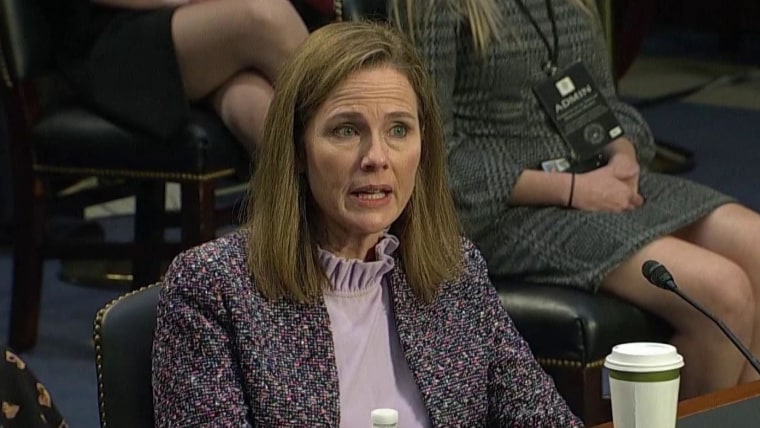The Supreme Court said Monday that it will hear a challenge to the Trump administration’s use of Pentagon money to build the southern border wall and also its appeal of a ruling that blocked a policy sending asylum applicants to Mexico while they wait for their appeals to be heard.
A federal appeals court ruled in June that the government improperly diverted $2.5 billion of Pentagon counterdrug program money to build more than 100 miles of border wall. The court said only Congress could approve such a transfer.
President Donald Trump ordered the use of the department money last year after a fight over his budget led to a partial government shutdown. It ended after Democrats approved money for border wall construction, but nowhere near what the president wanted.
The wall’s opponents, including the Sierra Club and some border communities, said the president cannot spend more than Congress has authorized or use the money in a manner inconsistent with the purposes of appropriations already made. Their lawsuit also said an emergency declaration law invoked by the president allows use of Pentagon construction funds only to support the military.
“There is no emergency requiring the use of the armed forces along the U.S.-Mexico border, and construction of a border wall is not necessary to support such use of the armed forces,” the suit said. A separate law passed by Congress allows the use of Defense Department support only for building facilities needed to block drug smuggling at the border, they said.
The Sierra Club said the wall would also cause irreversible environmental damage. “Endangered species could disappear from our southern border, while fragile landscapes are decimated by this destructive and pointless vanity project,” Gloria Smith, the group’s managing attorney, said.
In defending the plan, the Department of Justice said federal law gives the president wide latitude in deciding when to declare a national emergency.
“The statutory scheme leaves to the president the determination of whether a national emergency requires the use of the armed forces,” the department said, adding that federal law allows use of the money for unforeseen military requirements.
The government also said that the groups filing the lawsuit had no legal standing to challenge the wall program.
The Supreme Court will hear the case early next year, with a decision by the spring. But if Joe Biden wins the election, the federal government would probably stop construction anyway.
‘Remain in Mexico’ policy
Also Monday, the court agreed to hear the administration’s appeal of a lower court ruling on its “remain in Mexico” policy of returning asylum-seekers to that country while awaiting court hearings.
In response to a surge of immigrants at the southern border from Honduras, El Salvador and Guatemala, the Trump administration began sending people seeking asylum back across the border to Mexico instead of allowing them to wait in the U.S. for their cases to be heard.
From late January 2019 until the program was suspended because of the Covid-19 pandemic, more than 60,000 people were shuttled back to Mexico under what the government called the Migrant Protection Protocols.
An immigrant rights group challenged the policy in court, arguing that it put the lives of thousands of people at risk by sending them to highly dangerous conditions in Mexico, where gun battles, murders, kidnappings and sexual assaults were common. Their lawsuit said the program violated a treaty requiring the U.S. to guarantee that it would not “expel or return” noncitizens to any place where they faced the likelihood of persecution.
Lower federal courts agreed and ordered the government to stop enforcing the program, but the Supreme Court in March put that on hold and allowed the government to resume the policy while it appealed those rulings.
In urging the Supreme Court to hear the case, the Trump administration said people attempting to enter the country illegally actually seek asylum only about half the time, and only about 9 percent of applications are granted. Sending them to Mexico to wait for a decision, the Department of Homeland Security said, reduced one of the key incentives for illegal immigration — the ability to stay in the U.S. during immigration proceedings
In many cases, the government said, people without a valid asylum claim simply skip their hearing dates and disappear into the U.S.
The Department of Homeland Security largely discontinued the program in March after an order from the Centers for Disease Control and Prevention barred entry at the border of anyone lacking legal authority for admission.
The case also will be heard early next year, with a decision by the spring.













